Real estate taxes can be complex and challenging to manage effectively.
As a property owner or investor, you must understand and optimize your tax obligations to maximize returns and stay compliant with regulations.
Proper tax planning and management can help you take advantage of deductions, minimize liabilities, and make informed decisions about your real estate investments.
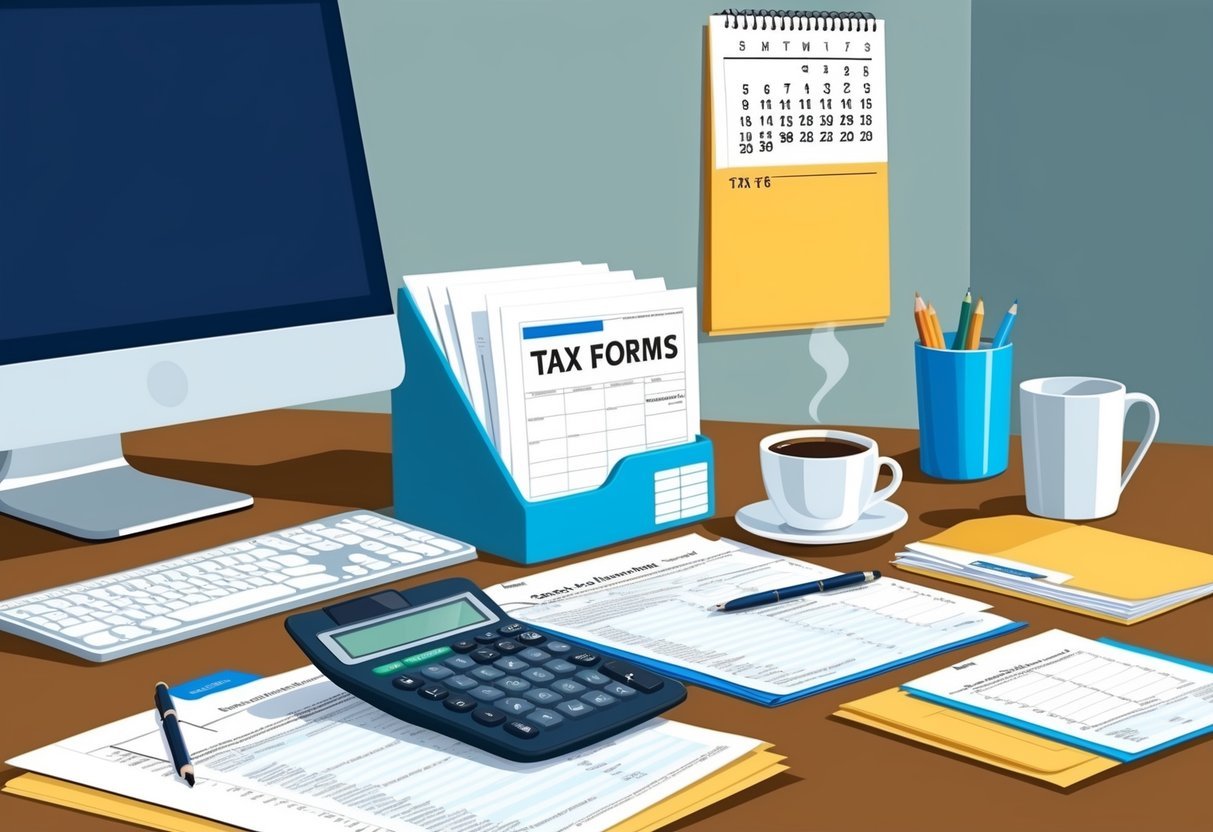
Utilizing the right tools and software can streamline your real estate tax management process and save you time and money.
From tracking expenses to calculating depreciation and generating tax reports, these tools offer valuable features tailored to the unique needs of real estate professionals and investors.
By implementing effective tax management strategies and leveraging technology, you can gain better control over your finances and potentially improve your bottom line.
1) TurboTax Real Estate
TurboTax offers specialized features for managing your real estate taxes.
With its intuitive interface, you can easily navigate through complex tax situations related to rental properties.
The software guides you through reporting rental income and deducting expenses on Schedule E.
You’ll find dedicated sections for inputting property taxes, mortgage interest, and other deductible costs.
TurboTax helps you maximize your deductions by prompting you to enter often-overlooked expenses.
This includes items like travel costs related to property management and supplies for maintenance.
If you’re a landlord, TurboTax assists in calculating depreciation on your rental property.
It also helps determine if you qualify for the active participation exception, which could allow you to deduct up to $25,000 in rental losses.
For those renting out part of their personal residence, TurboTax calculates the appropriate prorated deductions for you.
This ensures you claim the correct amount for both personal and rental use.
Remember to keep detailed records of all your real estate transactions throughout the year.
This will make the tax filing process smoother and help you take full advantage of TurboTax’s features for real estate investors.
2) H&R Block Deluxe + State
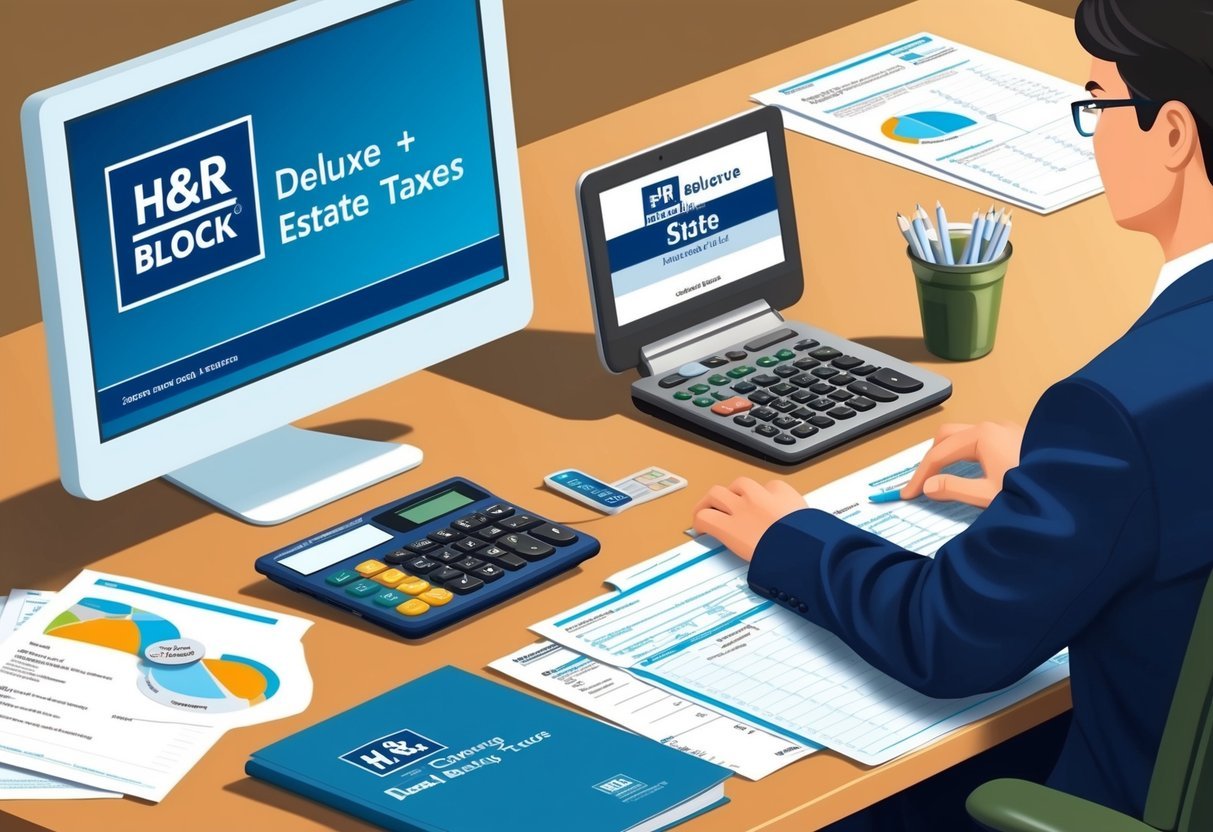
H&R Block Deluxe + State is a valuable tool for managing your real estate taxes.
This software provides guidance on maximizing mortgage interest and real estate tax deductions.
You’ll find step-by-step assistance for over 350 credits and deductions, ensuring you don’t miss any potential savings.
The software also includes H&R Block DeductionPro®, which helps you optimize charitable donations related to your property.
With H&R Block Deluxe + State, you can quickly import your W-2, 1099, 1098, and last year’s tax return, even if you used different software previously.
This feature saves you time and reduces the risk of data entry errors.
The software includes one state program download, allowing you to handle both federal and state taxes related to your real estate investments.
You’ll receive five free federal e-files and unlimited federal preparation and printing.
In the unlikely event of an audit, H&R Block Deluxe + State offers in-person representation, providing you with additional peace of mind.
The software also includes a help center with over 13,000 searchable articles to address your real estate tax questions.
3) TaxAct Premier

TaxAct Premier is a valuable tool for managing your real estate taxes.
This software is designed to handle complex tax situations, including those involving rental properties and investments.
You can download TaxAct Premier to streamline your tax preparation process.
It’s particularly useful if you own rental properties or have diverse investment portfolios.
The Premier edition covers various real estate tax scenarios.
It helps you navigate deductions related to property taxes, which are fully deductible on the appropriate schedules.
TaxAct Premier also assists with reporting income from rental properties.
You’ll find guidance on how to properly document rental income and expenses, ensuring you maximize your potential deductions.
The software provides support for handling 1099-K scenarios, which can be relevant if you use property management companies or short-term rental platforms.
This feature helps you accurately report all your real estate-related income.
You’ll appreciate the step-by-step guidance TaxAct offers.
It walks you through each section of your tax return, helping you identify all applicable deductions and credits related to your real estate activities.
TaxAct Premier is competitively priced at $79.99 for federal filing, with state returns available for an additional fee.
This pricing makes it an affordable option for managing your real estate taxes efficiently.
4) Real Estate Investor Software
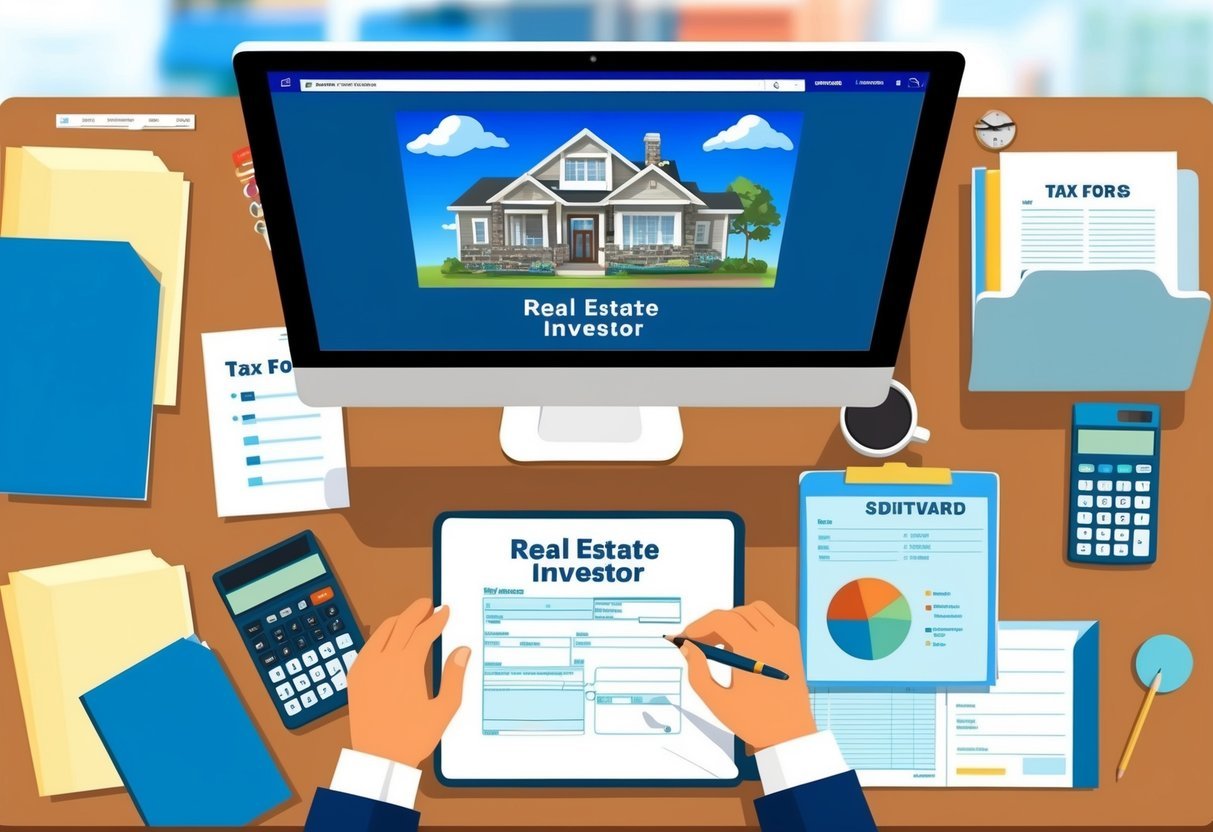
Real estate investor software can significantly streamline your tax management process.
These tools offer comprehensive solutions to help you track expenses, income, and deductions related to your properties.
Argus is a popular choice for real estate professionals.
It provides features for cash flow analysis, budgeting, and strategic planning, which can be invaluable when preparing your tax documents.
For smaller-scale investors, FreshBooks offers user-friendly accounting tools.
It’s particularly suited for landlords managing a few properties, allowing you to easily categorize expenses and generate financial reports.
If you’re looking for a more specialized solution, REISift might be worth considering.
It provides a robust customer relationship manager (CRM) and data analysis tools to help you find better deals and maximize your tax efficiency.
Zoho Books stands out for its unique integrations, particularly useful if you manage rental properties.
Its features can help you keep track of rent payments and property-related expenses, simplifying your tax preparation.
The right software can save you time and reduce errors in your tax filings.
Consider your specific needs and the scale of your real estate investments when choosing a tool.
5) Pro Series Tax
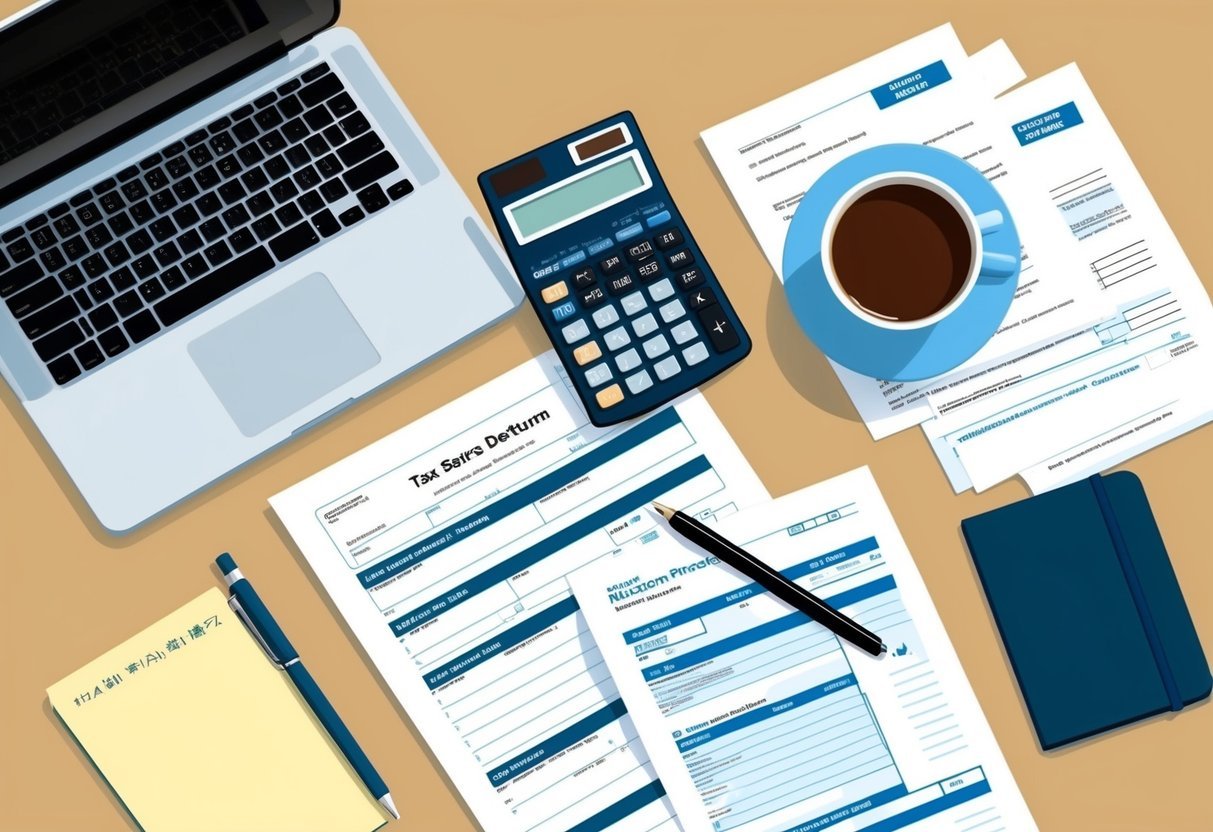
ProSeries Tax is a valuable tool for real estate professionals managing their tax obligations.
This software offers specialized features to handle complex real estate transactions and deductions.
You can easily enter real estate taxes on Form 1041 using ProSeries.
The program guides you through the process, ensuring accurate reporting of deductible taxes paid during the tax year.
When dealing with property sales, ProSeries provides specific worksheets for different scenarios.
For rental properties, you’ll use the asset entry worksheets.
Personal residences are handled through the Home Sale Worksheet, while other real estate transactions utilize the 1099B worksheet.
The software also aids in managing real estate professional status for tax purposes.
It helps you track hours spent on real property trades or businesses, crucial for meeting the 750-hour threshold and 50% personal services requirement.
ProSeries Tax streamlines the process of maximizing deductions, a key aspect of real estate tax planning.
You can efficiently record depreciation, property taxes, and other eligible expenses, potentially reducing your taxable income.
By using ProSeries, you ensure compliance with tax regulations while optimizing your real estate-related deductions.
The software’s user-friendly interface and real estate-specific features make it an excellent choice for managing your property tax obligations.
6) Drake Tax Software
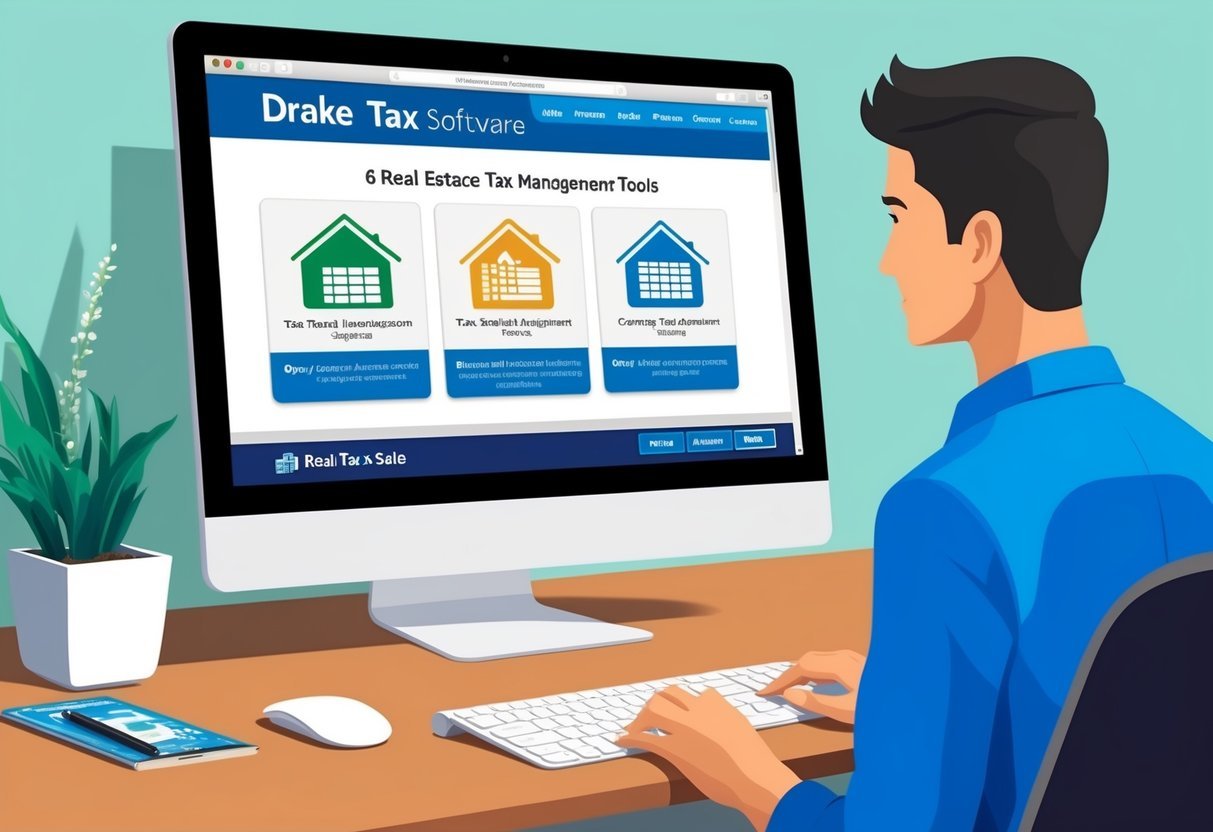
Drake Tax Software offers a comprehensive solution for real estate professionals managing complex tax situations.
You’ll find this software particularly useful for handling various property-related tax matters.
The user-friendly interface makes navigating through different tax forms and schedules a breeze.
You can easily input rental income, property expenses, and depreciation calculations.
Drake Tax integrates seamlessly with other accounting tools, streamlining your workflow.
This feature allows you to import financial data directly, saving you valuable time during tax season.
You’ll appreciate the software’s ability to handle multiple properties and clients efficiently.
It’s designed to scale with your business, whether you’re managing a handful of properties or a large portfolio.
The built-in error checking system helps ensure accuracy in your tax filings.
It alerts you to potential issues or inconsistencies, reducing the risk of costly mistakes.
Drake Tax provides regular updates to keep you compliant with ever-changing tax laws.
This feature is crucial in the dynamic real estate tax landscape.
You can access customer support when needed, ensuring you have assistance during critical tax preparation periods.
The software also offers educational resources to help you stay informed about real estate tax best practices.
Understanding Real Estate Taxes
Real estate taxes play a crucial role in property ownership and investment.
Knowing the types of taxes you may encounter and how they’re calculated can help you make informed decisions and plan your finances effectively.
Types of Real Estate Taxes
Local governments typically levy property taxes.
These taxes are based on the assessed value of your property and often support local services and infrastructure.
Another important consideration is income taxes on rental properties.
If you earn income from renting out real estate, you’ll need to report this on your tax return.
You can offset this income with various deductions, such as maintenance expenses and mortgage interest.
Capital gains taxes apply when you sell a property for more than you paid for it.
The rate depends on how long you’ve owned the property and your overall income level.
Tax Assessment Process
The tax assessment process determines the value of your property for taxation purposes.
Local assessors typically conduct these evaluations periodically, often annually.
Assessors consider factors such as:
- Location
- Property size
- Building condition
- Recent sales of similar properties
You can usually appeal your assessment if you believe it’s inaccurate.
This process often involves providing evidence of your property’s true market value or pointing out errors in the assessment.
Benefits of Proper Real Estate Tax Management
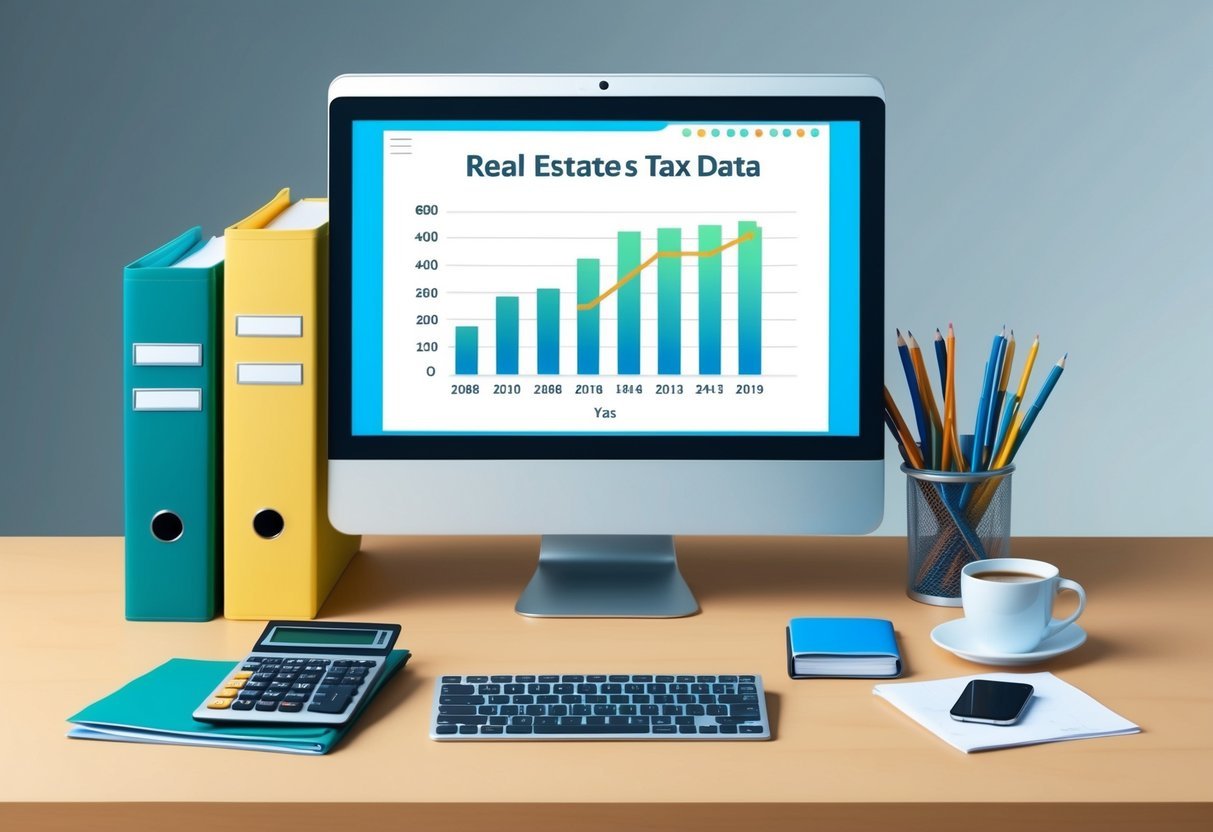
Effective real estate tax management offers significant advantages for property owners and investors.
By implementing sound strategies, you can optimize your financial position and ensure compliance with legal requirements.
Financial Savings
Tax deductions can substantially reduce your taxable income as a real estate investor.
You can deduct mortgage interest, property taxes, repairs, maintenance expenses, and insurance premiums.
These deductions directly impact your bottom line, increasing profitability.
Implementing tax-advantaged strategies like 1031 exchanges allows you to defer capital gains taxes when selling investment properties.
This approach enables you to reinvest profits and grow your portfolio more rapidly.
Consider establishing a C Corporation for property management activities.
This structure can potentially lower your tax rate and provide additional benefits for your real estate investments.
Legal Compliance
Proper tax management ensures you remain compliant with local, state, and federal regulations.
This compliance protects you from potential audits, penalties, and legal issues that could arise from improper reporting or missed payments.
Stay informed about property tax exemptions and credits available in your area.
You might qualify for reductions based on factors such as property use, ownership status, or improvements made to increase energy efficiency.
Regularly review and adjust your tax strategies as laws and circumstances change.
This proactive approach helps you adapt to new regulations and maintain compliance while maximizing your tax benefits.
Frequently Asked Questions
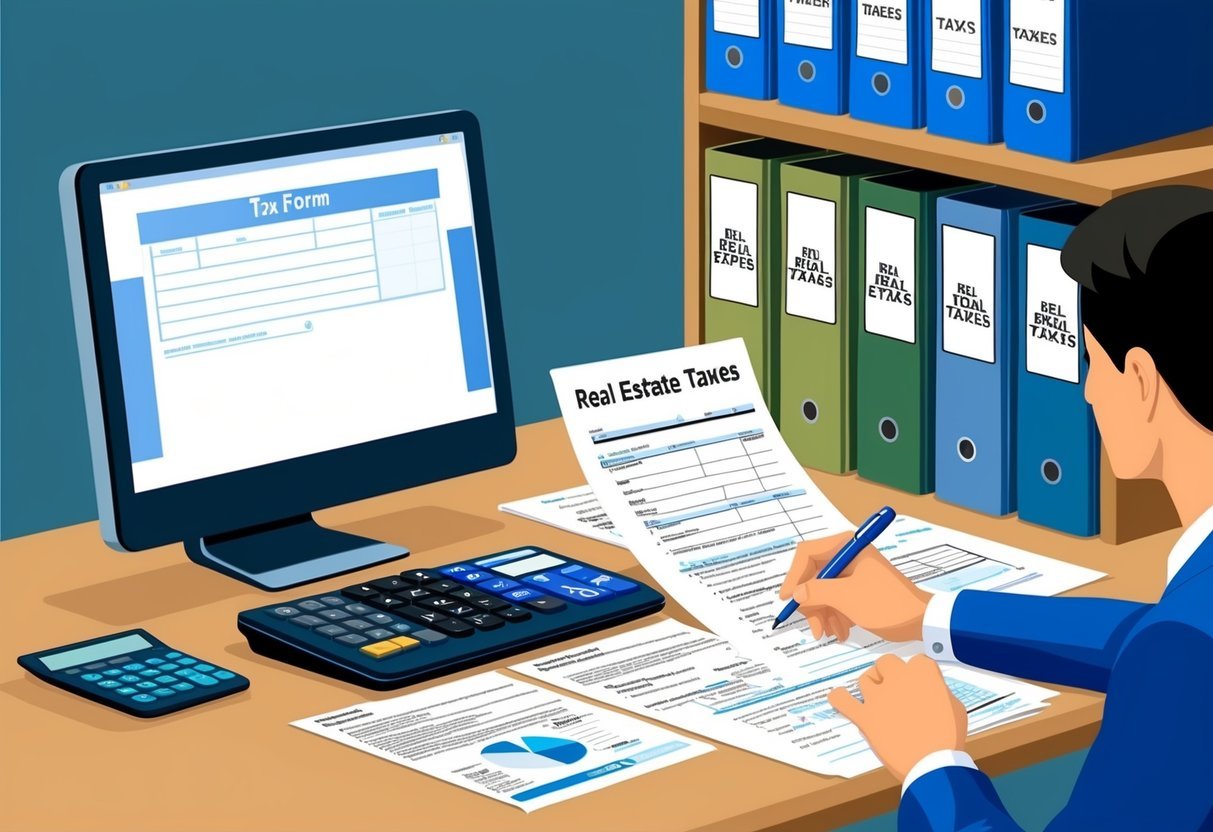
Real estate investors can employ various strategies to optimize their tax situation and maximize deductions.
Understanding key aspects of tax reporting, income structuring, and software features is crucial for effectively managing rental property taxes.
What strategies can real estate investors use to minimize tax liability?
You can take advantage of depreciation deductions on rental properties to reduce taxable income.
Consider using a 1031 exchange to defer capital gains taxes when selling investment properties.
Establishing a self-directed IRA for real estate investments can also provide tax advantages.
What are common tax deductions that rental property owners can take advantage of?
You can deduct mortgage interest, property taxes, repairs, and maintenance expenses.
Insurance premiums, property management fees, and travel costs related to your rental property are also deductible.
Keep detailed records of all expenses to maximize your deductions.
How might real estate investments be structured to capitalize on tax loopholes?
Form a Limited Liability Company (LLC) to potentially benefit from pass-through taxation.
Consider using cost segregation studies to accelerate depreciation deductions.
Explore opportunities for real estate professional status to potentially offset non-rental income with rental losses.
What are the best practices for reporting rental income to the IRS?
Report all rental income on Schedule E of Form 1040.
Keep meticulous records of rent received and expenses incurred.
Use software like TurboTax Real Estate or H&R Block Deluxe + State to ensure accurate reporting and maximize deductions.
Can owning real estate reduce an individual’s overall taxable income, and if so, how?
Yes, real estate ownership can reduce taxable income through various means.
Depreciation deductions on rental properties can offset rental income.
Mortgage interest deductions on primary residences can lower your overall tax burden.
What are the key features to look for in tax software designed for managing rental properties?
Look for software that offers specialized real estate tax forms and integrates with property management tools.
Features like automatic expense categorization, depreciation calculators, and audit risk assessment are valuable.
Consider options like TaxAct Premier or Real Estate Investor Software for comprehensive coverage.

